How nurseries show community leadership and create happier local neighbourhoods
by Mona Sakr Nurseries are at the heart of enabling children to positively contribute to the communities they live in. Through their work with children
It is important to include families in helping to shape your decisions in relation to developments you want to make. Families know their circumstances best and what types of support will work best for them. Families are the child’s first and most enduring educator, this makes their input vital.
Processes will evolve over time. Parents need to be seen as individuals in the same way as children are. Different approaches will have different outcomes for different parents.
You might like to read this example of how a setting is currently sharing how the EYPP is being spent.
by Mona Sakr Nurseries are at the heart of enabling children to positively contribute to the communities they live in. Through their work with children
The Families’ Access to Nature Project was undertaken by the Froebel Trust and Early Education between October 2021 and January 2022. Children, their parents, and
ICT – what’s it all about? ICT is information and communications technology. The term simply means all the technology around us, things like mobile phones,
Toddlers are very busy people. They are keen to learn about the world around them and ready to be fascinated by things that seem ordinary
Children’s curiosity about the world around them is apparent from the day they are born. Babies quickly use all their senses to explore themselves and
Reading is fun. It’s also a key skill that helps us to learn and to live our lives – so starting to read is an
What? Why? When? Where? What for? – and Why? yet again. Sometimes children’s questions just keep on coming. It can be wearing, especially if you
It’s true, maths really is everywhere, and learning about it doesn’t happen just at school or nursery. Young children have lots of important mathematical experiences
What is mark making? Mark making is the term used to describe the marks that children in their early years make on paper and is
The role of music in the early years Everyone knows how much young children love to sing and dance, but all too often music is
Children learn how to behave All children are individuals, because they are born with their own character. This is why even children within the same
Early childhood seems like a time of constant change to adults. Just as you’ve got used to a predictable daytime nap, your child decides that
Why go outside? Big movers Have you ever been in an open space with young children? The first thing they want to do is to
Young children are artists. They use all sorts of materials to show what they have noticed about the world. They might draw the rain falling
Taking care of a baby is tiring work, with a lot of feeding, nappies and broken nights. When you are exhausted, it can be harder
Here are twelve links with free ideas to support play and learning at home, suitable for early years, nursery, reception and school aged children in
About the project Early Education received funding from the Department for Education under its 2015-16 Voluntary and Community Sector grants programme, for a project to
Allocated funding Government sets the rate of Early Years Pupil Premium as part of the allocation of early years funding annually. How EYPP works Children who
There are a range of sources that can help you to refine your decision making processes in regard to EYPP. This list is not exhaustive.
It is important to be able to justify the choices you make as to how you spend the EYPP money. The focus needs to be
Here are some ideas of how you might spend the EYPP funding. It is important to think about which option(s) are most relevant for your
Schools have been receiving Pupil Premium since 2011 and there is much material available to us to learn from. There are reviews on the Ofsted
The small amount of the EYPP funding per child means that partnership working will be a key way to making your funding go further. Especially
In most cases, sound early years principles and practices are already in place in settings. The EYPP funding allows settings to review and refine what
When justifying your EYPP expenditure it will be important to monitor at two separate points ie a starting point and again after the intervention. There
Since the introduction of the EYFS framework in 2008 there has been a huge emphasis upon encouraging parents to become engaged in their children’s learning.
The Duchess of Cambridge launched The Royal Foundation Centre for Early Childhood on 18th June 2021 with a substantial report Big change starts small which identifies six
Entering the unknown It was extremely hard and emotional to say goodbye to the children and parents in my Reception class at the end of



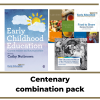
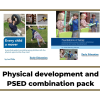
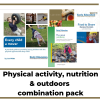
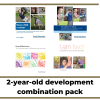
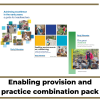
Early Education
2 Victoria Square
St Albans
AL1 3TF
T: 01727 884925
E: office@early-education.org.uk